
La Guma, Alex
1925–1985 South African writer Alex la Guma was a South African writer of mixed race. His novels portray the experiences of nonwhites living under APARTHEID, the policy of racial segregation followed in SOUTH AFRICA from 1948 to 1994. The son of a well-known trade union leader in CAPE TOWN, la Guma became politically active at an early age. When […]
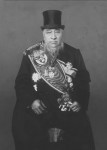
Kruger, Paul
1825–1904 South African political leader Paul Kruger led the Dutch AFRIKANER REPUBLICS in their war against British control in the late 1800s and early 1900s. Kruger was born in Cape Colony in what is now SOUTH AFRICA. When the British tried to take over the region, his family fled in what became known as the Great Trek—the migration of […]
Kourouma, Ahmadou
1927–2003 African novelist Ahmadou Kourouma, a celebrated writer, is the author of two of the most famous African novels in French. In his work he criticizes postcolonial governments and one-party political systems. He also describes the despair felt by many Africans when independence failed to fulfill their expectations. These themes have appeared in many works written by French-speaking Africans. Born […]
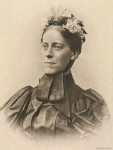
Kingsley, Mary Henrietta
1862–1900 British traveler While growing up in London, Mary Kingsley followed her father's travels around the world with great interest. His adventures and her own reading fueled her desire to explore the globe herself. After both parents died in 1892, Kingsley decided to travel. In the years between 1893 and 1895 she made two trips to Africa, visiting ANGOLA, the […]
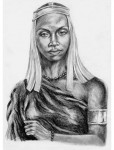
Kimpa Vita
ca. 1686–1706 African religious leader Kampa Vita was a member of the nobility in the west-central African kingdom of KONGO. For a time, she was a nganga, a person who performed certain important rituals. After recovering from an illness, she claimed to have died and returned to life possessed by the spirit of the Christian saint Anthony. Taking the […]
Kimbangu, Simon
ca. 1887–1951 Congolese religious leader Simon Kimbangu was born in the Lower Congo (now CONGO, KINSHASA) and raised as a Baptist. Although not a member of the clergy, he began to preach in British missions in 1918. He also experienced a series of spiritual dreams and visions. In an effort to escape them, he moved to the city of […]
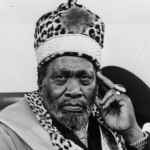
Kenyatta, Jomo
1888 (or 1889)–1978 President of Kenya Jomo Kenyatta, the most important African leader in colonial KENYA, served as the country's first president after independence. A member of the GIKUYU ethnic group, Kenyatta was born Kamauwa Muigai, and later baptized under the name Johnstone. After leaving the Scottish mission school he attended as a youth, he changed his name to Jomo […]
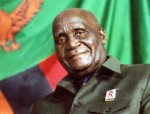
Kaunda, Kenneth
1924– President of Zambia Kenneth Kaunda served as ZAMBIA's first president and became a prominent political leader within Africa. Born in what was then Northern Rhodesia, Kaunda trained as a teacher but became active in politics in the 1950s. He organized the local branch of the African National Congress, the country's first political party, and later served as the party's […]
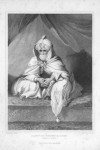
Kanemi, Muhammad al-Amin al-
ca. 1775–ca. 1837 Scholar and ruler of Bornu Muhammad al-Kanemi was born in southwestern LIBYA and received an extensive Muslim education in both Africa and Arabia. He traveled widely, finally settling in the kingdom of BORNU in north central Africa in 1799. There he attracted a large following of scholars. Soon after his arrival, the ruler of Bornu asked for […]
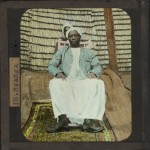
Kagwa, Apolo
ca. 1868–1927 Prime minister of Buganda Apolo Kagwa emerged as the leader of the Christian Party, one of thegroups struggling to control BUGANDA during the religious wars of the late 1800s. From 1889 to 1926, he served as katikiro (prime minister) of the semi-autonomous kingdom of Buganda under British authority. In 1897 Kagwa helped overthrow Buganda's King Mwanga […]
Kadalie, Clements
ca. 1896–1951 South African labor leader Clements Kadalie, an early African labor leader, organized a black union that challenged white rule in SOUTH AFRICA. After graduating from high school in his home country of Nyasaland (now MALAWI), Kadalie traveled through southeastern Africa. He arrived in CAPE TOWN in 1918. That year he founded the Industrial and Commercial Workers Union of […]

Kabarega
ca. 1850–1923 King of Bunyoro-Kitara Kabarega was ruler of the kingdom of Bunyoro-Kitara in what is now the nation of UGANDA. During his reign he expanded the empire and led a determined resistance to British colonization in East Africa. Although some historians consider Kabarega a tyrant and a murderer, others see him as a hero and an early African […]
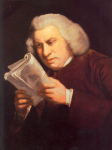
Johnson, Samuel
1846–1901 Yoruba historian Samuel Johnson was the author of the first important history of the YORUBA people. The son of a liberated slave and descendant of African kings, Johnson was born in SIERRA LEONE. At the age of 11, he and his family moved back to Yorubaland in what is now NIGERIA. Educated in schools run by the Church […]

Ibn Battuta
1304–ca. 1369 Arab traveler Born in Tangier in Morocco, Abu Abdallah Muhammad ibn Battuta was one of the most widely traveled individuals of the Middle Ages. Trained as a religious lawyer, he set out at the age of 21 on a pilgrimage to the Muslim holy city of Mecca. Before he died he had visited almost the entire Islamic […]
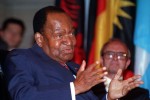
Houphouet-Boigny, Felix
1905–1993 President of Ivory Coast Felix Houphouet-Boigny, who served as president of IVORY COAST for 33 years, was one of the most powerful and influential politicians in Africa. The son of a wealthy Baule chief, he attended French colonial schools and received a degree as an African physician, the highest medical degree an African could obtain under French colonial […]
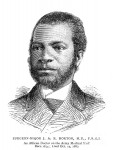
Horton, James Africanus
1835–1883 Sierra Leonean physician James Africanus Beale Horton, an IGBO from West Africa, became a physician and served for 20 years as a medical officer and administrator. He also wrote books on medicine and on the political situation in the region. Born in SIERRA LEONE to a father who had been rescued from a slave ship, Horton grew up […]
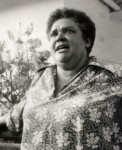
Head, Bessie
1937–1986 Botswanan writer Bessie Head is the author of several novels and short stories about the political and social conditions of African society. She was the illegitimate daughter of a white South African woman and a black stable hand. Head spent most of her childhood in the home of a mixedrace foster family in SOUTH AFRICA. At age 13, […]
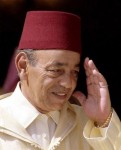
Hassan II
1929–1999 King of Morocco Hassan II, king of MOROCCO from 1961 until his death, was credited with preserving the Moroccan monarchy. During his reign he introduced a number of democratic reforms and tried to build closer ties with the United States and other Western countries. Educated in both Arabic and French, Hassan studied law at the University of Bordeaux […]
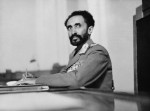
Haile Selassie I
1892–1975 Emperor of Ethiopia The emperor of ETHIOPIA from 1930 to 1974, Haile Selassie I sought to transform Ethiopia into a modern nation. He also hoped that Ethiopia would take a leading role in Africa. Born Lij Tafari Makonnen, Selassie was the son of an adviser to Emperor MENILEK II. The emperor recognized Selassie's abilities and promoted him to […]
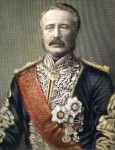
Gordon, Charles George
1833–1885 British general in Sudan General Charles George Gordon fought for Britain in Europe, Asia, and Africa. Killed defending the city of KHARTOUM in SUDAN, he was regarded by the British as a hero and a martyr. Born in Woolwich, near London, Gordon entered the military in 1852. He fought Britain's wars in various parts of the world, earning […]

Gordimer, Nadine
1923–2014 South African writer Nadine Gordimer, a prizewinning author, has written extensively about life in SOUTH AFRICA under APARTHEID—a policy of racial segregation followed from 1948 to 1994. Born in a white family in South Africa, Gordimer left school at the age of 10 for medical reasons. She was educated at home and in her local library. By the […]

Garvey, Marcus Mosiah
1887–1940 Pan-African leader Marcus Mosiah Garvey played an important role in Pan-Africanism, a movement aimed at unifying blacks throughout the world in protest against racism and colonialism. At the time, most of Africa was controlled by European colonial powers. One of Garvey's greatest contributions was making the world aware of the problems that blacks in Africa faced under their rule. […]
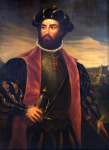
Gama, Vasco da
ca. 1460–1524 Portuguese navigator and discoverer Vasco da Gama discovered the route around Africa to India and changed the nature of trade between east and west. Bartolomeu Dias was the first European to sail around Africa's Cape of Good Hope and into the Indian Ocean. In 1497 the Portuguese ruler Manuel I sent Vasco da Gama on a voyage that […]
Galawdewos
ca. 1522–1559 Emperor of Ethiopia Galawdewos took the throne of ETHIOPIA in 1540. At the time much of the country was under the control of Ahmed Gran, leader of the Muslim kingdom of Adal. When a Portuguese expedition arrived in Ethiopia in 1541, Galawdewos formed an alliance with its leader, Cristovao da Gama, to fight the Muslims. Gran killed […]
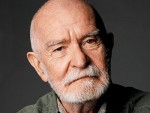
Fugard, Athol
1932– South African playwright Athol Fugard is one of Africa's best-known and most respected playwrights. His plays explore the personal suffering of individuals living under APARTHEID—the policy of racial segregation followed in SOUTH AFRICA from 1948 to 1994. Growing up in a poor white family placed Fugard in contact with the poor and oppressed black population of South Africa from […]
Fasiladas
1632–1667 Emperor of Ethiopia Fasiladas stands out among historic emperors of ETHIOPIA because of his long reign and his impact on the country's political and religious policies. One of his first acts as emperor was to expel representatives of the Roman Catholic Church and to insist that only Ethiopian Orthodox Christianity could exist in his empire. Fasiladas founded a […]
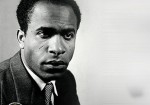
Fanon, Frantz
1925–1961 Algerian psychiatrist and theorist Born in the French West Indies, Frantz Fanon is considered one of the leading theorists of revolution of his time. After attending medical school in France, he served for three years as chief psychiatrist at a hospital in Blida, Algeria. Then he joined the National Liberation Front, a movement formed to free Algeria from French […]
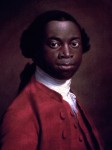
Equiano, Olaudah
ca. 1740s–1797 Abolitionist writer Olaudah Equiano, a former slave, became a forceful voice in the antislavery movement. His autobiography had considerable influence on British public opinion. Born in the kingdom of Benin to an IGBO family, Equiano was captured by slave traders at the age of ten. Later a British naval officer renamed him Gustavus Vassa and took him […]
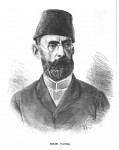
Emin Pasha
1840–1892 Explorer and colonial governor In the late 1800s, a European known as Emin Pasha became the object of a much-publicized rescue operation in Africa. During this time, the European powers were deeply involved in Africa. Emin, a provincial governor in the Egyptian colony of SUDAN, had been stranded by a religious war. Born Eduard Schnitzer in what is now […]
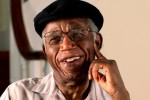
Ekwensi, Cyprian
1921–207 Nigerian writer Cyprian Ekwensi has won fame for his books about urban life in modern Africa. Born into an IGBO family in northern NIGERIA, he was educated at Ibadan University College in Nigeria and at the Chelsea School of Pharmacy in London. He spent his early career working in communications in the Nigerian civil service. Ekwensi turned to […]
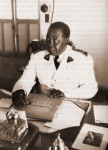
Eboue, Adolphe-Felix-Sylvestre
1884–1944 Colonial administrator Adolphe-Felix-Sylvestre Eboue was a Creole official who served France in a variety of colonial posts during the early 1900s. He is most famous for bringing several French colonies in Africa into World War II to fight on the side of the Allies. Born in French Guyana in South America, Eboue attended a school of colonial administration, […]
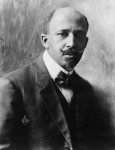
Du Bois, W.E.B.
1868–1963 Father of Pan-Africanism William Edward Burghardt Du Bois was a leading champion of equality for blacks in the United States and elsewhere. An African American born in Massachusetts, Du Bois attended college and earned a Ph.D. degree from Harvard University. In the early 1900s, he became a black civil rights leader. Du Bois was known for his view […]
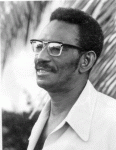
Diop, Cheikh Anta
1923–1986 African scholar and political leader Cheikh Anta Diop was an accomplished historian, physicist, archaeologist, and linguist who championed the cause of African independence and explored the roots of African culture and civilization. Born to a Muslim family in SENEGAL and educated in both Africa and France, Diop had an unusual background from which to examine Africa's colonial experience. While doing […]
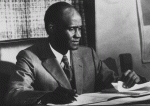
Diop, Alioune
1910–1980 Writer and cultural leader The Senegalese writer Alioune Diop played a major role in changing the way the French-speaking world viewed Africa. Born and educated in SENEGAL, Diop worked as a professor and represented the colony in the French Senate. In 1947 he started Presence africaine, which became the most influential French-language journal on Africa. In Presence africaine, […]

Dingiswayo
1770s–1816 Chief of the Nguni confederation Dingiswayo was the last chief of the Nguni confederation of southern Africa before Europeans colonized the area. According to legend, Dingiswayo became chief by killing his brother because he believed that his brother was not the rightful ruler. After assuming power, Dingiswayo combined several related kingdoms into a unified confederation. He then appointed subchiefs from […]
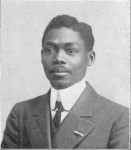
Diagne, Blaise
1872–1934 Senegalese politician The Senegalese politician Blaise Diagne was the first African elected as a deputy to the French National Assembly in Paris. Like all Africans born in SENEGAL during the colonial period, Diagne was an originaire—a French citizen with certain limited rights. Educated in France and at the University of Saint-Louis in Senegal, he worked in Africa […]
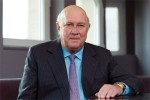
De Klerk, Frederik Willem
1936– South African political leader Frederik Willem De Klerk served as president of SOUTH AFRICA from 1989 to 1994. He was the driving force behind government efforts to end the country's official system of race discrimination known as APARTHEID. De Klerk was raised in a political environment. His father was a cabinet minister who served as president of South […]
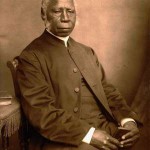
Crowther, Samuel Ajayi
ca. 1806–1891 Anglican bishop Samuel Ajayi Crowther was an educated traveler, translator, and missionary who was named the first African bishop in the Anglican Church. Born in what is now NIGERIA, Crowther was captured and sold into slavery at the age of 12. A British antislavery ship rescued him at sea, however, and took him to FREETOWN, SIERRA LEONE. […]
Correia, Mae Aurelia
Early 1800s Trader in Guinea-Bissau Mae Aurelia Correia was a wealthy and powerful trader in the GUINEA-BISSAU region from the 1820s to the 1840s. Among the many women traders of African or mixed ancestry at the time, Mae Aurelia was the most successful. Little information exists about Mae Aurelia's birth and family because the Portuguese colonial authorities in Guinea-Bissau […]
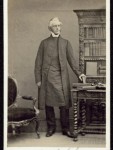
Colenso, John William
1814–1883 British missionary John Colenso was an outspoken critic of conventional missionary work who condemned the way colonial authorities treated Africans. Born in England, Colenso became the first bishop of the Diocese of NATAL in 1853 and established a mission station in the town of Bishopstowe. He was well-read in both Christian teaching and modern scientific thinking and discoveries. He […]

Coetzee, J. M.
1940– South African novelist The South African writer and literary critic John Michael Coetzee is known for novels that explore the effects of apartheid in his homeland. Coetzee studied at the University of Cape Town and at the University of Texas, where he received a Ph.D. in literature. He then returned to SOUTH AFRICA despite his opposition to the […]

Cleopatra
69–30 B.C. Egyptian queen Cleopatra, one of the most famous figures of ancient history, was the last ruler of EGYPT in the tradition of the pharaohs who had governed the land for several thousand years. She came to the throne in 51 B.C. as the wife of her brother, Ptolemy XIII. For several hundred years before that time, […]
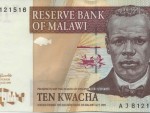
Chilembwe, John
1871–1915 Malawian nationalist John Chilembwe was a church leader and opponent of European colonialism in Africa. His activities helped inspire the independence movement in his country of MALAWI and nationalism in Africa. Schooled at a Scottish Presbyterian mission in Malawi, Chilembwe broke with the Presbyterians in 1892 after meeting Baptist missionary Joseph Booth. Booth took Chilembwe to the United States […]
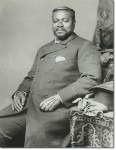
Cetshwayo
1832–1884 Zulu king Cetshwayo kaMpande was king of Zululand, in southeastern Africa, from 1872 to 1879 and again from 1883 to 1884. Although he fought with great skill and courage to keep his kingdom free and undivided, his efforts were overwhelmed by British colonial forces. During his early reign, Cetshwayo developed ties with Britain's coastal colony of Natal. He […]

Cape Coloured People
Cape Coloured People are the mixed race population of various towns in Cape Province, SOUTH AFRICA. They are descendants of Dutch, British, and Kxoe people (various non–Bantu-speaking groups of southern Africa), as well as of slaves brought from MADAGASCAR and East Asia. Until the late 1950s, when apartheid policies were adopted in South Africa, most of the Cape Coloured lived […]
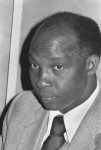
Camara Laye
1928–1980 Guinean author Camara Laye is one of Africa's best-known and most respected francophone (French-speaking) authors. His first novel, L'enfant noir (The Black Infant) is also one of his most popular. Written in 1953, the book tells of Camara's childhood in the town of Kouroussa, GUINEA. On the one hand, it is a personal account of the author's Mande […]
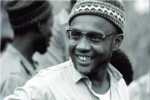
Cabral, Amilcar Lopes
1924–1973 Political and revolutionary activist Born in the Portuguese colony of GUINEA (later, GUINEA-BISSAU), Amilcar Lopes Cabral went to Portugal to study. After graduating from the University of Lisbon, he returned home a revolutionary leader, and he brought about Guinea-Bissau's independence. Cabral believed that people who opposed oppression should take action and commit themselves to social reform. He won respect […]
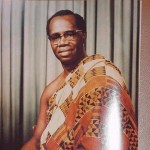
Busia, Kofi A.
1913–1978 Prime minister of Ghana Born into African royalty, Kofi A. Busia was elected prime minister of GHANA in 1969 and led his country for a brief period. In addition to politics, Busia focused on philosophy and economics. He earned a doctoral degree from Oxford University in England and wrote many books, including Africa in Search of Democracy (1967). […]
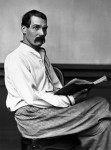
Burton, Sir Richard Francis
1821–1890 British explorer Sir Richard Francis Burton made four journeys in Africa in the mid-1800s. Although he failed in his mission to locate the source of a branch of the Nile River, he contributed greatly to European knowledge of African geography. Born in Torquay, England, and raised in France and Italy, Burton served in the British army in […]

Brink, Andre
1935–2015 South African novelist Andre Phillipus Brink is a South African novelist who writes in both Afrikaans and English. He became known as known one of the “Sixtyers,” writers of the 1960s who wanted to revolutionize South African fiction by addressing social, moral, and political issues. Born in SOUTH AFRICA, Brink was educated both there and in France. His […]
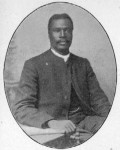
Braide, Garrick Sokari
ca. 1882–1918 Nigerian religious leader Garrick Sokari Braide, a Nigerian missionary and prophet, was largely responsible for the spread of Christianity in the Niger Delta region of Africa in the early 1900s. His preaching and methods combined traditional African elements with Christianity and stressed prayer and faith healing. Braide was born in the village of Obonoma, the center of […]
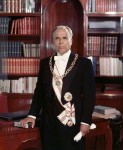
Bourguiba, Habib
1903–2000 President of Tunisia Habib Bourguiba, son of a former Tunisian army officer, grew up under French colonial rule in TUNISIA. He was a leader in his country's independence movement and became its first president in 1957. After receiving a good education in Tunisia, young Bourguiba studied law in Paris. There he met other North Africans who were […]

Boumedienne, Houari
ca. 1927–1978 President of Algeria Hoauri Boumedienne was the first vice president of ALGERIA after it won independence from France in 1962. Three years later, he led a coup against President Ahmed BEN BELLA. Boumedienne became Algeria's president and remained in that position until his death. In his youth, Boumedienne was involved in the movement for Algerian independence. He rose […]
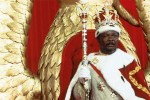
Bokassa, Jean-Bedel
1921–1996 President of the Central African Republic Military leader Jean-Bedel Bokassa became the president of the CENTRAL AFRICAN REPUBLIC after a coup in 1966. Eleven years later, he had himself declared emperor and renamed the country the Central African Empire. The son of a village chief, Bokassa began his military career in the French army in 1939. He fought […]
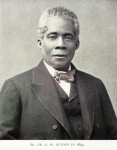
Blyden, Edward Wilmot
1832–1912 Pioneer of Pan-African Unity Edward Blyden was a teacher and author who promoted the idea of black African pride. He stressed the importance of African languages and culture but also explored the possibility of combining African and Western cultures. The inventor of the phrase “African personality,” Blyden laid the groundwork in his writings for the NEGRITUDE movement of the […]
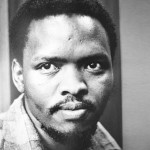
Biko, Steve
1946–1977 South African social activist Steve Biko, an outspoken opponent of apartheid, earned fame as a leader of the black consciousness movement in the 1960s and 1970s. The movement was based on the belief that the divisions between whites and blacks in South Africa were so great that blacks could not count on whites to end apartheid. Biko also […]
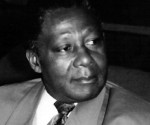
Beti, Mongo
1932–2001 Cameroonian novelist Mongo Beti is Cameroon's most celebrated novelist. His early novels usually explore the conflict between traditional African values and those of European colonialists. His best-known works, published in the 1950s, feature characters who come to understand the injustice of colonial rule and to realize they must help end it. Beti's most famous novel, Le Pauvre Christ […]
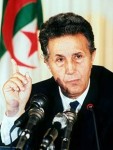
Ben Bella, Ahmed
1916–2012 First president of Algeria Aleading figure in Algeria's struggle for independence from France, Ahmed Ben Bella served as the country's first president from 1963 to 1965. Educated at a French primary school near Oran, ALGERIA, he became involved with the independence movement while pursuing further studies in the nearby city of Tlemcen. During World War II he served in […]
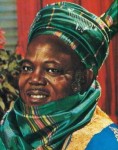
Bello, Ahmadu
1910–1966 Premier of Northern Nigeria Ahmadu Bello, a Nigerian leader, served as the first premier of Northern NIGERIA in 1954, when the country was under British rule. He was active in the Northern People's Congress (NPC), a cultural organization that he helped transform into a political party in the early 1950s. Under Bello's leadership, Northern Nigeria and the NPC […]
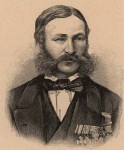
Barth, Heinrich
1821–1865 German traveler and explorer Heinrich Barth was a German-born scholar who made two long trips to Africa that he recorded in a book called Travels and Discoveries in North and Central Africa. Barth's extensive knowledge of the peoples and places described in his book made it a standard reference for scholars of Africa. Barth was educated in Berlin, […]
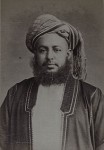
Barghash ibn Sa’id
1833(?)–1888 Sultan of Zanzibar Sultan Barghash ibn Sa'id ruled ZANZIBAR from 1870 until his death in 1888. He was a reformer who tried to eliminate corruption and to improve the economy of Zanzibar. Barghash rebuilt the clove economy after it was destroyed by a hurricane in 1872. Later he established a fleet of steamships that boosted the country's trade […]
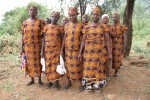
Bantu Peoples
The Bantu, a large group of related peoples, originated along what is now the border between NIGERIA and CAMEROON and spread throughout central and southern Africa. The term Bantu is sometimes used to describe all Africans and African culture in general. But this use of the term is inaccurate; Bantu peoples make up only about a third of Africa's population. […]
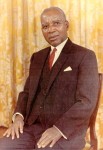
Banda, Ngwazi Hastings Kamuzu
1898–1997 President of Malawi Dr. Hastings Kamuzu Banda served as president of MALAWI from 1966 to 1994. His presidency was a time of one-party rule. Born in the British colony of Nyasaland (present-day Malawi), Banda left home at age 17 to study in SOUTH AFRICA. Later he traveled to the United States, where he attended college and medical school. […]
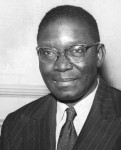
Azikiwe, Benjamin Nnamdi
1904–1996 President of Nigeria Benjamin Nnamdi Azikiwe was the first president of the Federal Republic of NIGERIA, after the country won its independence from Britain in 1960. As a young man, Azikiwe left Nigeria to study in the United States. He earned master's degrees in both political science and anthropology. After his studies, he worked for three years as […]

Asma’u, Nana
1793–1864 Islamic poet and teacher Nana Asma'u, an Islamic teacher in what is now northern Nigeria, was known for her writings and for her work in educating Muslim women. Fluent in Arabic and several African languages, she memorized the entire Muslim holy book, the Qur'an. Her father, UTHMAN DAN FODIO, was an Islamic ruler who led a jihad in […]

Askiya Muhammad I
(?)–1528 Ruler of the Songhai Empire Askiya Muhammad I was a statesman and military leader who ruled the Songhai Empire of West Africa for more than 30 years. During his reign Muhammad not only expanded the empire, he also reorganized it and transformed it into a Muslim kingdom. He is said to have been a nephew of the Songhai […]
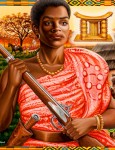
Asantewa, Yaa
ca. 1832–1921 Asante queen Yaa Asantewa was queen of the ASANTE town of Edweso, located in present-day GHANA. In 1900 she led a three-month siege against British troops in the Asante capital of Kumasi. The British had seized Kumasi four years earlier in an attempt to extend their control of the country, then known as the Gold Coast. They […]
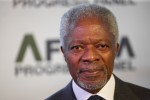
Annan, Kofi
1938– Ghanaian diplomat Elected Secretary-General of the United Nations (UN) in 1997, Kofi Annan is the first Secretary-General from Africa south of the Sahara. This diplomat from GHANA has worked for the UN since 1962, except for a brief period in the 1970s when he served as Ghana's director of tourism. Before embarking on his career in diplomacy, Annan […]
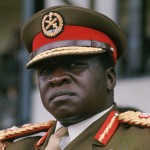
Amin Dada, Idi
ca. 1925–2003 Ugandan dictator Idi Amin Dada, a member of the Nubi people, ruled UGANDA from 1971 to 1979. Regarded as one of Africa's most ruthless leaders, Amin used murder as a political tool, and may have killed as many as 300,000 people during his reign. Enlisting in the military as a young man, Amin advanced rapidly. He was […]

Achebe, Chinua
1930–2013 Nigerian writer Chinua Cinualomogu Achebe is a Nigerian writer whose novels often explore the difficult choices faced by Africans in modern life. Achebe's first novel, Things Fall Apart (1958), is considered a classic and is one of the most widely read works of African literature. The hero of the book commits suicide, unable to choose between radically different ways […]
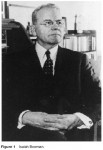
Bowman, Isaiah (1878–1950)
Isaiah Bowman was arguably the most influential American geographer of the twentieth century, serving as the ambassador of the discipline to policymakers and the nation at large (Figure 1). Born in 1878 and educated at Harvard and Yale, he began his career with a research focus on geomorphology but soon became interested in human–environment interactions, particularly in the Andes Mountains. He led […]
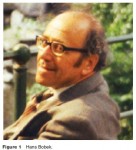
Bobek, Hans (1903–1990)
Born in Klagenfurt, Bobek's (Figure 1) studies at the University of Innsbruck (1921–26 – geography, history, social sciences) established two key areas of research. On the one hand his dissertation about Innsbruck (Innsbruck, eine Gebirgsstadt, ihr Lebensraum und ihre Erscheinung) established his later interest in urban research as well as in central place theory. The other field of research derived from […]
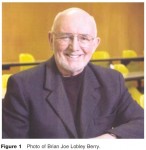
Berry, Brain J. L. (1934–)
Brian Joe Lobley Berry (Figure 1) was born in Stafford, England on 16 February 1934, received his BSc in economics and geography from University College, London in 1955 and his MA (1956) and PhD (1958) in geography from the University of Washington, and is the Lloyd Viel Berkner Regental Professor and Dean of the School of Economic, Political and Policy […]

Geographies of Older People
While there has been significantly less geographical work on older than younger people, there is a growing willingness among geographers to explore the ways space, place, and scale impact upon and are shaped by older people. Geographers have thus looked at ageism within spatial planning and the ways older people experience the built environment as well as how older age […]
Mobility and Older People’s Quality of Life
Studies of migration tend to feature the more visible and radical forms, like retirement to Spain or Costa Rica, or the return from London or New York to Jamaica, when most migrations by older people are local housing adjustments – like those by adults of all ages. Many local moves make an important contribution to maintaining older people's independence and […]
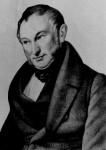
Von Thunen, Johann H. (1780–1850)
JOHANN HEINRICH von Thunen was an important theorist in the science of land use. His work brought together the fields of economics and geography to provide an illustration of the balance between land cost and transportation costs. Although his land system was designed to calculate optimal distribution in the context of preindustrialized Europe—before the development of railroads, for example—the equations and principals he […]
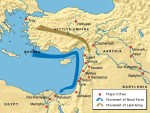
Sea Peoples
SEA PEOPLES ARE one of the populations of the ancient world who vigorously shaped the cultural landscapes in the eastern Mediterranean and adjacent lands. Sea Peoples were active from EGYPT to GREECE and as far as Sardinia and Corsica, and they reached the apex of their activity around 1200 B.C.E. They were a people or clans of seafarers who invaded eastern Anatolia, […]
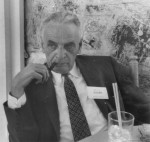
Sauer, Carl O. (1889–1975)
CARL ORTWIN SAUER was one of the most influential American geographers. Throughout his long and distinguished career, he shaped and fundamentally changed the field of cultural and anthropogeography in the UNITED STATES. Sauer was of German descent, and his ancestors were members of a German pietistic sect affiliated with the Methodists who had settled in Warrenton, MISSOURI, Sauer's place of birth. After […]

Polo, Marco (1254–1324)
MARCO POLO IS THE best known of all Western travelers along the SILK ROAD. He traveled Asia for 24 years, all the way to CHINA, where he became confidant of Kublai Khan (1214–94.) He also wrote of his travels. Marco was born in ITALY, either in Curzola off the Dalmatian coast or in Venice, in […]
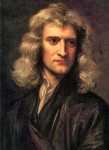
Newton, Isaac (1642–1727)
SIR ISAAC NEWTON WAS one of the most famous and influential men in the world of science, in both mathematics and natural philosophy. His laws of gravity and motion formed the basis of classical mechanics, principles that are at the heart of modern engineering, physics, and astronomy. His work provided a mathematical mechanism to prove […]
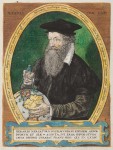
Mercator, Gerardus (1512–1594)
GERARDUS MERCATOR is the Latin name of Gerhard Kremer, one of the greatest geographers and cartographers, who lived in the 16th century. He was born on March 5, 1512, in Rupelmonde in the Flanders (now in BELGIUM), seventh child of Hubert and Emerentia Kremer. His father was a shoemaker. Thanks to his paternal uncle Gisbert […]

Magellan, Ferdinand (1480–1521)
FERDINAND MAGELLAN, one of the most distinguished explorers in world history, was born in to a middle-class Portuguese family. In his youth, Magellan was awed by Christopher Columbus's seafaring adventures, and he developed a strong interest in the sea and enlisted in the navy in 1505. While serving as a naval officer, Magellan participated in […]
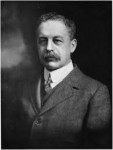
Mackinder, Halford J. (1861–1947)
HALFORD JOHN MACKINDER was born on February 15, 1861, in Gainsborough, a small port and market town at the river Trent in England. He was the eldest of six children born to Dr. Draper and Mrs. Fanny Anne Mackinder. His father was well educated and trained as a scientist. It was he who taught Mackinder […]
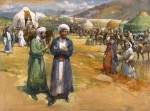
Ibn Battuta (1304–1377)
BORN IN TANGIER, MOROCCO, Muhammad ibn Abdullah ibn Battuta was a famous Arab traveler and writer who explored in Africa, Europe, and Asia. Ibn Battuta's journey began in North Africa in 1325 with travels that included visits to EGYPT, SYRIA, Mecca on the Arabian Peninsula, northeastern IRAN, southern IRAQ, the RED SEA, YEMEN, East Africa, […]
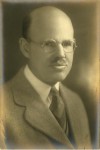
Huntington, Ellsworth (1876–1947)
CONTEMPORARIES WERE impressed by the clarity of Ellsworth Huntington's style, the intensity of his reasoning, the simplicity of his grand theories, and his unique ability to generalize: “With devastating logic and sound scholarship, Ellsworth Huntington shows how climate, weather, geographical location, diet, health and heredity control the character of a nation—and determine its dominant or […]
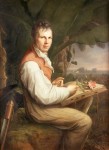
Humboldt, Alexander von (1769–1859)
ALEXANDER VON HUMBOLDT is significant to the study of geography because of the breadth of his scientific inquiries and knowledge and his ability to integrate these studies within larger works that were both scientifically advanced and appealing to a wider nonspecialist public. He was known as a natural scientist of the highest order, working to […]
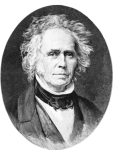
Davis, William M. (1850–1934)
WILLIAM DAVIS WAS among the leading geographers of the early part of the 20th century. Today, Davis might be more narrowly considered a geomorphologist based on his major research interests. But in his time, Davis enjoyed considerable influence over the direction and conduct of geographical science, in the UNITED STATES and in Europe. Born to […]
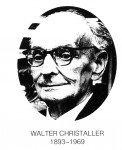
Christaller, Walter (1893–1969)
A GERMAN geographer, Walter Christaller helped bring quantitative and statistical disciplines to the study of geography. Christaller was born in Berneck, GERMANY; his father was a clergyman and his mother an author. Before 1914, he attended university in Heidelberg and in Munich. He enlisted during World War I, and became an officer. Returning after the […]